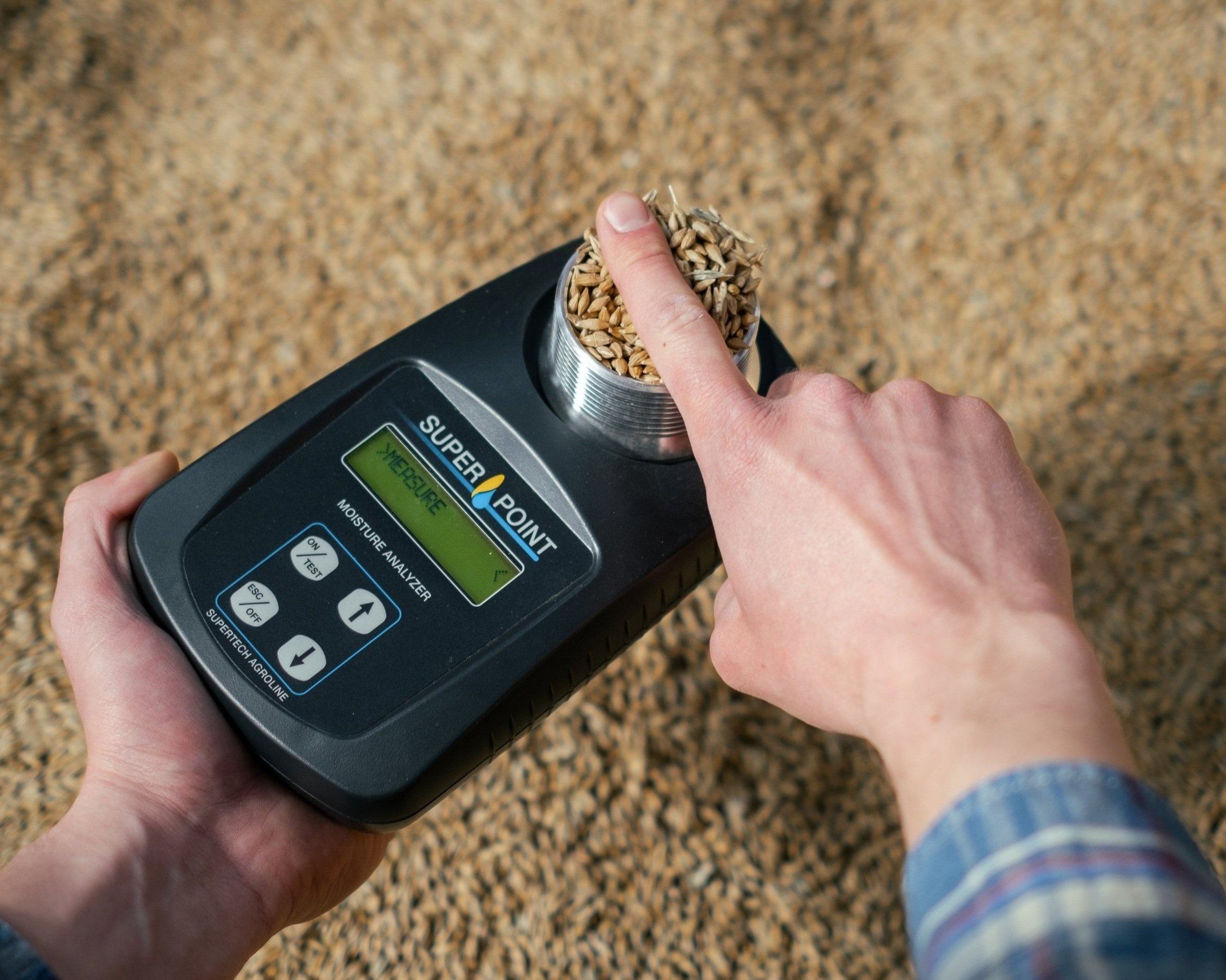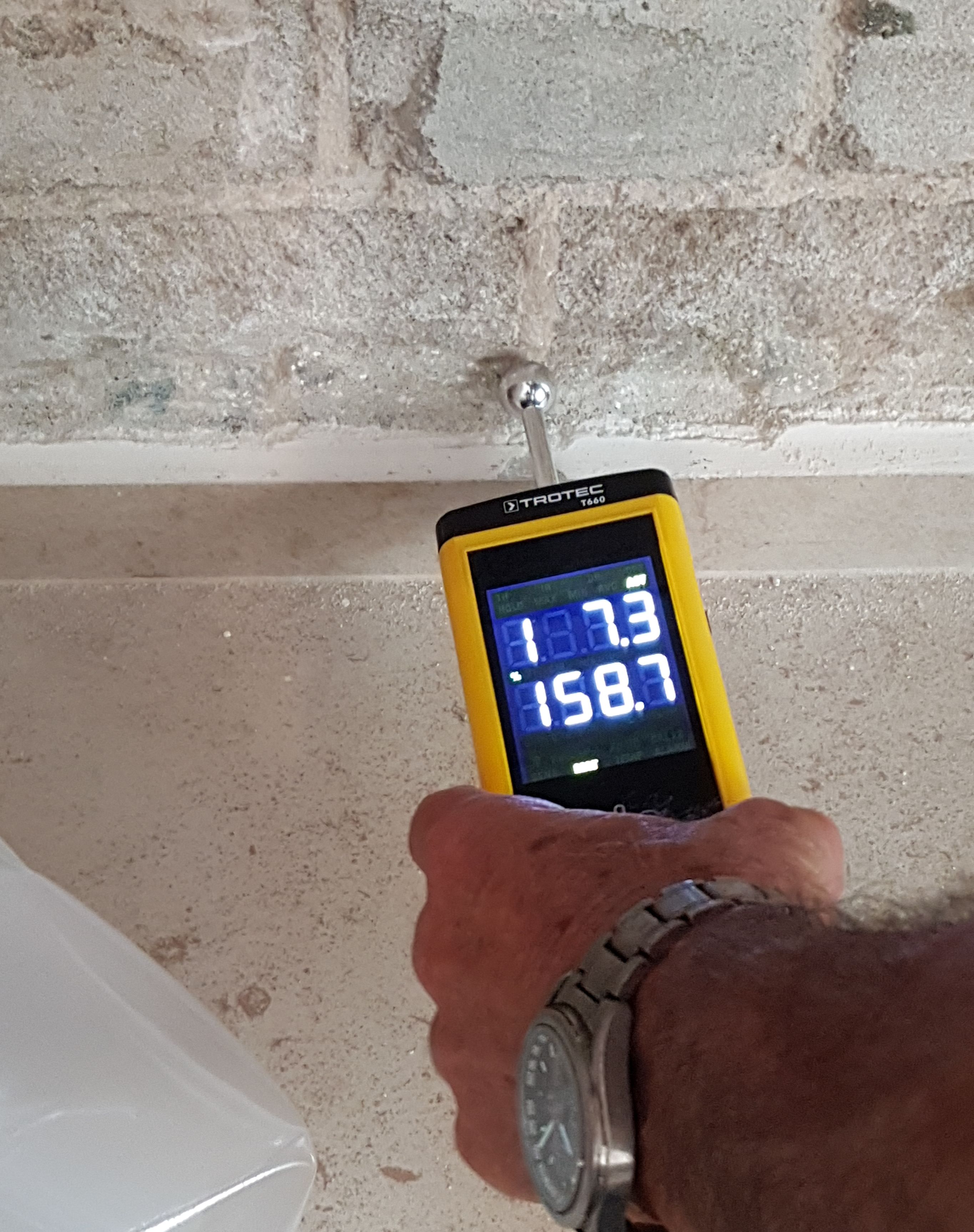Moisture Meter Acquiring Guide: What to Search for in High-Quality Instruments
Wiki Article
The Ultimate Overview to Dampness Meters: A Comprehensive Overview and Just How They Can Save You Money
In the realm of building upkeep, construction, and different sectors, the value of properly gauging dampness levels can not be overemphasized. Dampness meters work as crucial tools in discovering and checking moisture content in materials, aiding in preventing costly damages and ensuring the top quality of products. Recognizing the subtleties of different kinds of wetness meters, their applications, and the potential cost-saving advantages they supply can be a game-changer for businesses and experts alike. Discovering how these tools can not only streamline procedures yet also add to monetary savings is a journey worth beginning on.Kinds of Moisture Meters
One typical type is the pin-type dampness meter, which determines the electrical resistance between 2 pins put right into a product. Pinless wetness meters, on the other hand, usage electromagnetic sensor plates to scan a larger area without triggering damages to the product's surface area.
Infrared wetness meters gauge the thermal residential or commercial properties of a material to determine its dampness content non-invasively, making them useful for applications where pin or pinless meters might not be ideal. Understanding the different types of wetness meters readily available can aid industries select the most appropriate tool for their details dampness dimension requirements.

Benefits of Using Moisture Meters
Moisture meters offer very useful advantages in accurately keeping an eye on and analyzing wetness levels in diverse products and atmospheres. One of the key advantages of utilizing moisture meters is the prevention of potential damage created by excess moisture.
Furthermore, using moisture meters can result in raised power efficiency. By identifying locations with high dampness levels, such as leakages or poor insulation, adjustments can be made to enhance power conservation and lower energy expenses. In agricultural settings, moisture meters play a vital function in optimizing crop yields by making it possible for farmers to keep an eye on dirt moisture levels and make informed watering decisions. On the whole, the benefits of using wetness meters extend across various industries, giving affordable solutions and promoting much better quality assurance practices.
Exactly How to Choose the Right Dampness Meter
Choosing the suitable moisture meter entails taking into consideration key variables such as material compatibility, dimension variety, and calibration precision. When choosing a moisture meter, it's vital to ensure that the meter appropriates for the specific material you will be screening. Various products have differing electrical residential properties that can affect dampness readings, so picking a meter designed for your product is important for accurate results. In addition, consider the measurement series of the moisture meter. Make sure that the meter can identify moisture degrees within the range needed for your applications. Calibration precision is one more important factor to bear in mind. Select a dampness meter with reputable calibration to guarantee exact and consistent readings. Some meters might call for regular calibration adjustments, so understanding the calibration procedure is essential. By very carefully examining these variables, you can pick a moisture meter that meets your demands and supplies accurate moisture dimensions for your jobs.Appropriate Methods for Dampness Meter Use

Price Financial Savings Through Wetness Meter Applications
Exactly how can the critical use of wetness meters cause considerable cost savings internet across various industries? Dampness meters play a vital role in cost savings by avoiding possible damages and making certain quality assurance in various sectors. In the farming sector, wetness meters help in figuring out the optimal time for gathering plants, avoiding excess or over-drying wetness that can affect the end product's high quality. This precise monitoring assists farmers stay clear of unnecessary losses and maximize their yield.
In a similar way, in building and construction, wetness meters help protect against expensive damages by detecting dampness degrees in structure materials, such as wood or concrete, which can cause structural problems otherwise attended to without delay. By identifying issue areas at an early stage, contractors can take rehabilitative steps to prevent considerable repairs or substitutes, eventually conserving time and cash.
Furthermore, in the food handling sector, dampness meters are necessary for Full Report monitoring product top quality and making certain compliance with safety and security guidelines. By properly gauging dampness material in food, suppliers can prevent spoilage, preserve quality, and lower waste, causing significant price savings. On the whole, the critical application of dampness meters is a valuable financial investment that can bring about substantial cost decreases and enhanced efficiency throughout various industries.
Verdict
Finally, moisture meters are useful tools for finding and determining wetness levels in different products. By using find more the best wetness meter and complying with appropriate techniques, customers can properly protect against costly damages triggered by excess wetness. Buying a quality wetness meter can lead to substantial price savings in the future by recognizing possible concerns beforehand and enabling punctual removal. Inevitably, dampness meters are essential instruments for maintaining the stability and long life of products and structures.Wetness meters serve as vital tools in detecting and checking moisture material in products, assisting in preventing costly problems and ensuring the top quality of items. Infrared wetness meters gauge the thermal homes of a product to identify its moisture content non-invasively, making them useful for applications where pin or pinless meters might not be appropriate.Wetness meters supply indispensable benefits in accurately monitoring and evaluating wetness levels in diverse products and settings. In agricultural settings, wetness meters play a vital role in optimizing plant returns by allowing farmers to monitor soil wetness levels and make informed irrigation decisions.In verdict, dampness meters are important tools for spotting and gauging wetness levels in various products.
Report this wiki page